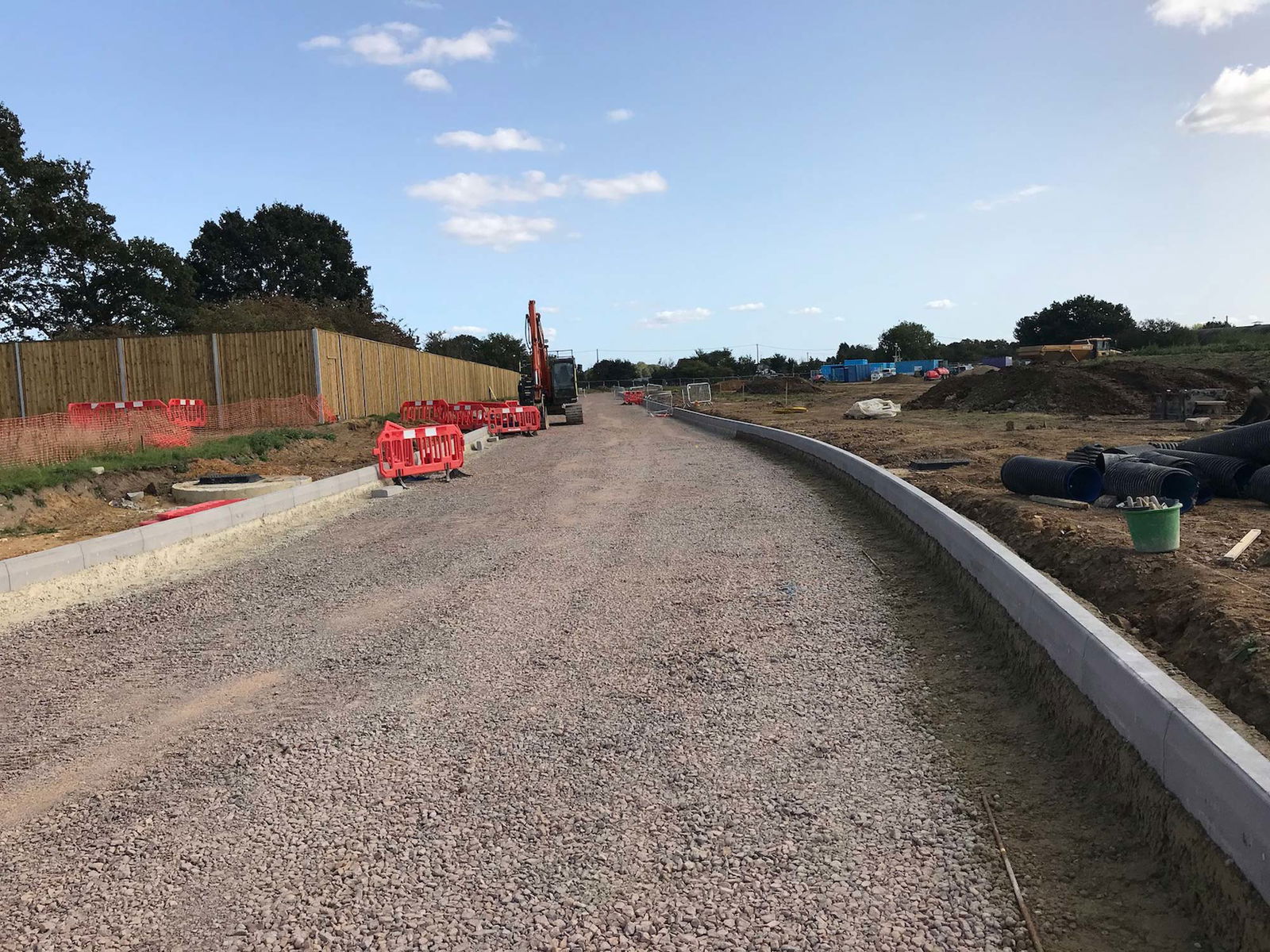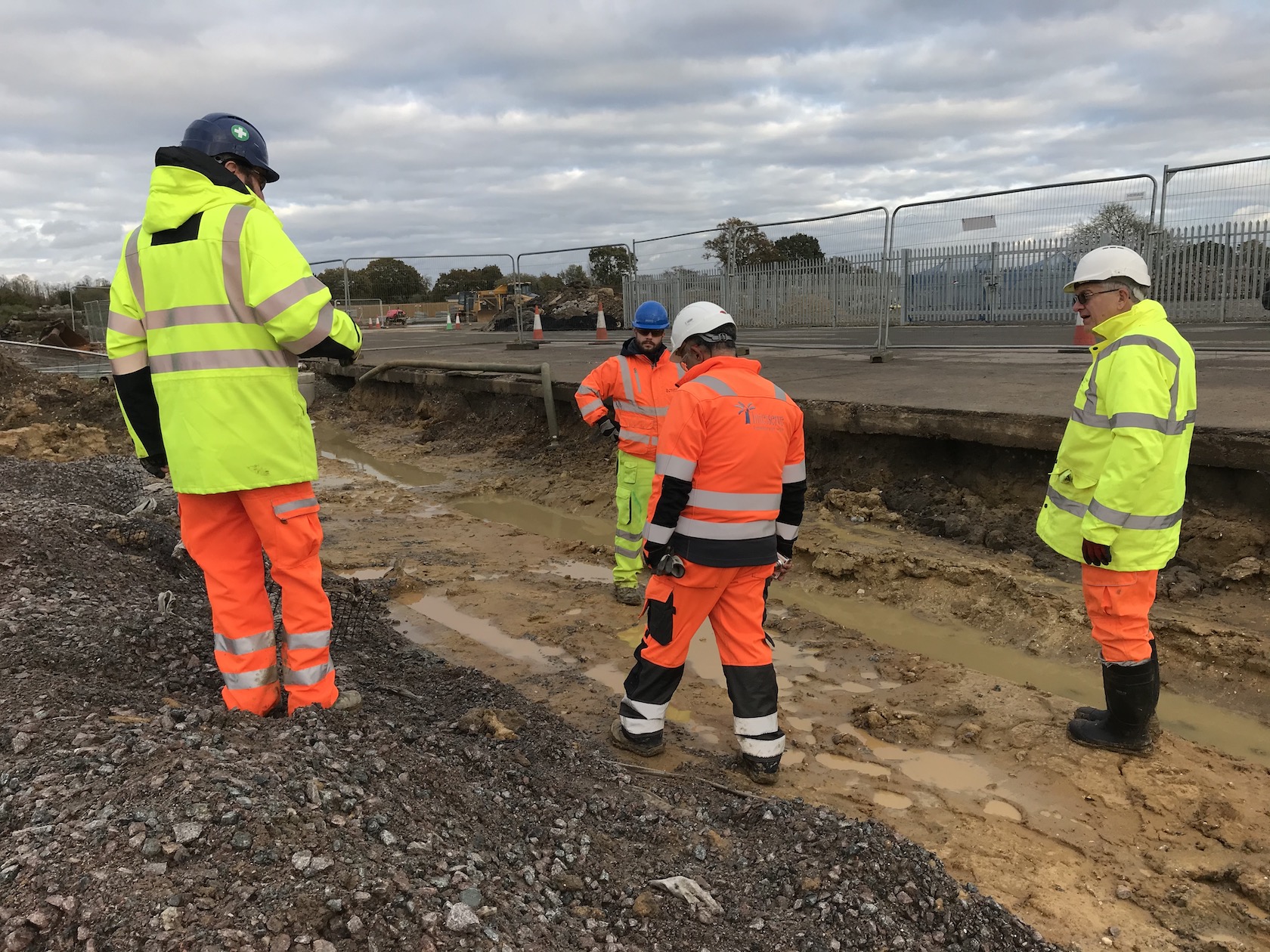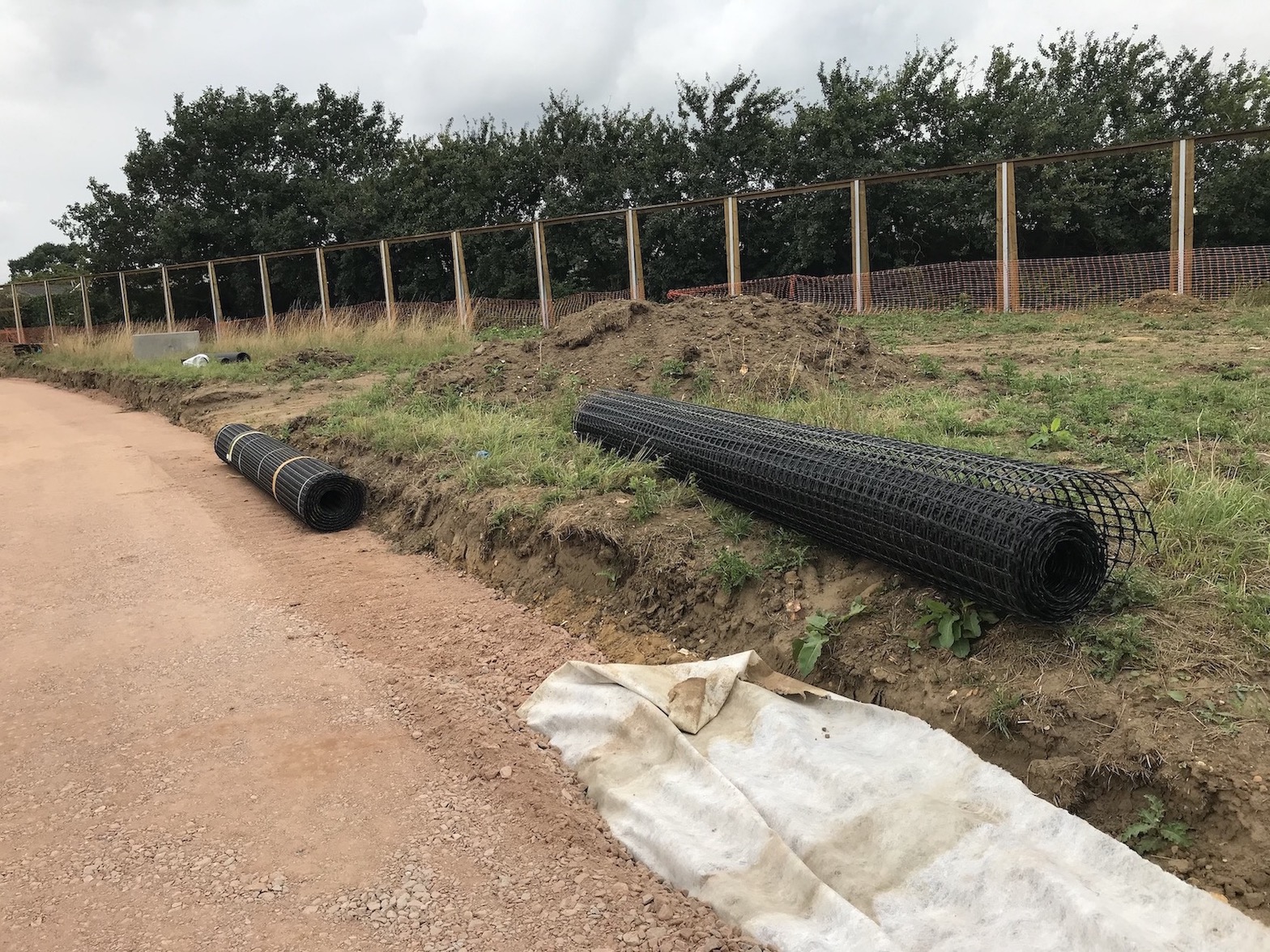
Helping to keep busy Suffolk road moving

Works to upgrade the busy A140 between Yaxley and Brome in Suffolk, in a bid to enhance road safety and cut down on congestion have now been completed – following technical support from civil engineering designer, manufacturer, and supplier Geoworks. Two roundabouts and a link road, as well as landscaping and new pathways for walkers and cyclists, have been constructed in Eye as part of the £5.4m scheme, which is expected to improve traffic flow, reduce the risk of accidents, and support future economic growth. Our technical team was contacted in August 2020 by contractor Interserve (now Tilbury Douglas), which made the improvements on behalf of Suffolk County Council, after the groundworker needed assistance mitigating issues caused by soft ground in the sub-formation near where the link road was being constructed – bringing the project to a halt. David Fisher, Head of Geosynthetics Sales, said: “The site is adjacent to an existing concrete hardstanding, which was an old runway during the Second World War. Over the years, water had run off the landing field into the area that was being developed, which had heavily saturated the ground. “The team at Tilbury Douglas had carried out testing and found very low California bearing ratios (CBRs), much lower than the specification requirement for the design. Initial proposals suggested the team would have to excavate a further 500mm below the current detail – bringing extensive cost and time implications. 
“At this point, the project had been paused and no further works could be carried out. The soft ground conditions were also being exacerbated by the bad weather battering Suffolk at the time. After visiting the site, we recommended the use of geogrids, an under-utilised range of products that reduces the total excavation and export of earthworks and the overall import and compaction of aggregates.” The use of geogrids and aggregates stabilised the ground conditions, allowing the project to get back underway and generating significant cost savings against the initial excavation proposals. When developing the first roundabout for the scheme, Tilbury Douglas found even worse ground conditions. David added: “We came up with a special composite detail of cement stabilisation along with geogrids to get them out of these poor ground conditions. We also provided advice and further geogrid solutions to support with the soft fill to the verges for the footpaths, which is very rare. “The challenges the ground conditions provided happened when Tilbury Douglas was already on-site, so we had to provide a very reactive solution to keep the project moving. Geogrid designs can be progressed quickly and the products and materials delivered to site promptly, meaning there’s next to no mobilisation period – enabling construction to get back underway fast. “Going down the traditional excavation route would have brought major cost implications to the project and extended the programme significantly. So, we are delighted to have been able to support in keeping this vital scheme moving through the use of geogrids.” The works to improve journey time reliability, road safety, and access to the Eye Airfield Development Area were funded by a £3.75m National Productivity Investment Fund grant from the Department for Transport and a £1.45m grant from the New Anglia Local Enterprise Partnership. 
John Kilpatrick, assistant project manager at Suffolk County Council, said: “Works were delayed due to the restrictions implemented at the beginning of the coronavirus lockdown, meaning construction started later than planned and ran into the winter. It seemed to have been one of the wettest winters on record, which meant there were a lot of ground conditions that we hadn’t initially expected. “We had problems with low CBRs at sub-formation level and were introduced to Geoworks, which came up with solutions that enabled the project to get back underway. Without Geoworks' support and its geogrid solutions, the construction programme would have been extended and we would have been forced to resort to more expensive tactics to mitigate the problems we had found. “Now complete, the scheme has provided significant highway benefits to the region, resolving long-standing road safety and congestion issues and unlocking the nearby Eye Airfield for development – aiding economic growth in the area.” |



